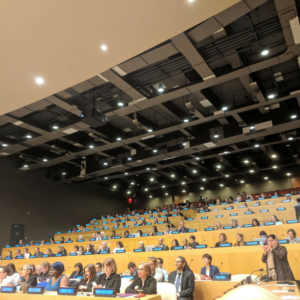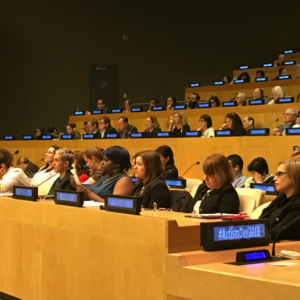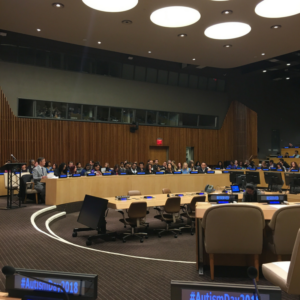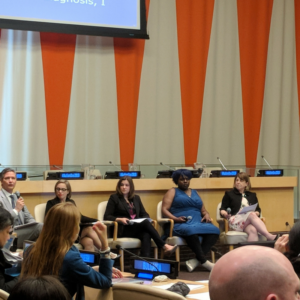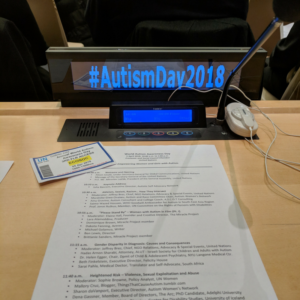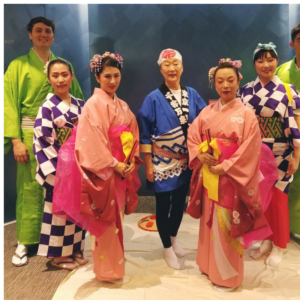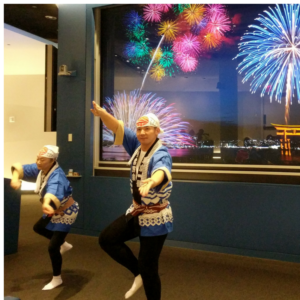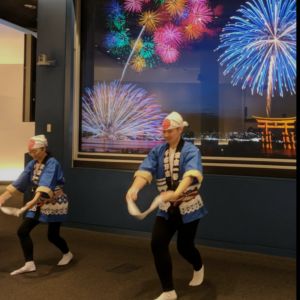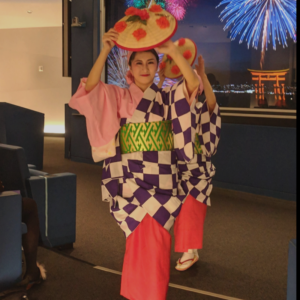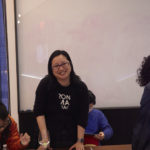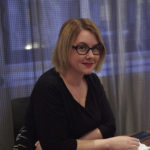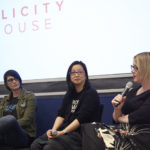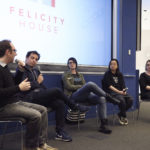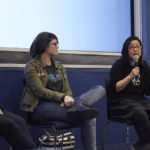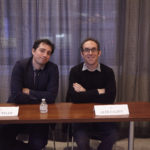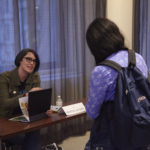All posts by Felicity House
On April 5th, Felicity House community members had the honor of attending World Autism Awareness Day at the United Nations where our Executive Director, Beth Finkelstein, participated as a panel member. The theme for the conference was “Empowering Women and Girls with Autism.” This topic came about as a direct response to a 2017 United Nations General Assembly resolution to draw attention to the challenges women and girls with disabilities face in the context of the implementation of the Convention on the Rights of Persons with Disabilities (CRPD).
The panels included topics like, “Ableism, Sexism, Racism…How They Intersect” and “Gender Disparity in Diagnosis: Causes and Consequences.” The panels included Felicity House Self Advocate Advisory Board Members Julia Bascom, Sharon daVanport, and Morenike Giwa Onaiwu. Other panels included esteemed actress Dakota Fanning and Director Ben Lewis.
On March 6th, 2018 Felicity House had the pleasure of hosting a performance with The Japanese Folk Dance Institute of New York.
The dances, handed down from generation-to generation, originated from the daily rituals of people in local Japanese communities.
The dances were organized to represent the different seasons, each dance taking place in front of a unique background. As the audience watched the dancers seamlessly move from winter to spring, the host explained the symbolism and gave demonstrations about how to wear the garments.
To watch the dances live, please click here to visit our Facebook page.

Last month Felicity House hosted a tea-tasting with award-winning tea connoisseur, Linda Villano, the owner of SerendipiTea.
When community members arrived they were greeted by small porcelain tasting cups (the material can change the flavor of the tea). Gathered around the table, the participants were then able to taste the five main categories of tea, brewed to perfection courtesy of a precise timer.
Here are the five main categories of tea:
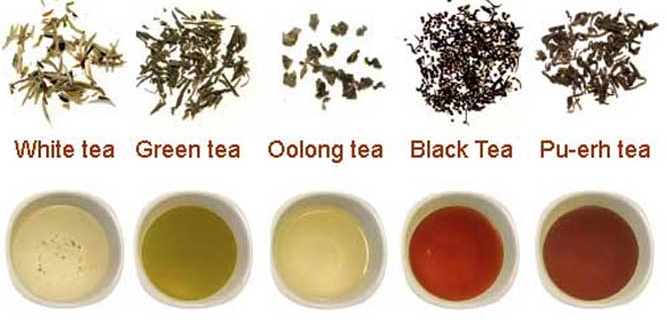
Surprised not to see our own favorites, chamomile and peppermint, Linda explained that all tea comes from a bush called Camellia Sinensis. “There are different varieties, like roses or grapes,” she clarified. Herbal tea, like peppermint, is made from infusions of leaves, bark, roots, berries, seeds, and spices but do not contain leaves from Camelia Sinensis and therefore are considered “Tisanes” and not tea.
After the tasting, we were able to ask Linda some rapid fire questions about tea.
Q: We know that a lot of tea comes from overseas, is it also grown in the United States ?
A: Until recently, about eight years ago, there wasn’t a huge tea industry in the U.S., excluding Hawaii. We’re starting to see more and more local small-batch artisan tea growers in the United States.
Q: What’s the most expensive type of tea?
A: Oolong tends to be very pricey. There’s a tea called Da Hong Pao, a type of Oolong, which is one of the rarest teas in the world. Darjeeling tea is also expensive because it can only be found in the Darjeeling district in West Bengal, India.
Q: Does the brewing time, type of cup, and water actually matter?
A: All of these factors can change the taste. The exact same tea brewed in New York and New Jersey will taste differently because of the water.
Q:What’s one thing you wish people knew about tea?
A: There’s a tea for everyone. If you don’t like tea, you haven’t found the right tea for you.

Participants agreed that the cozy setup, Linda’s knowledge, and the tea itself made this workshop a wonderful way to combat the winter blues.
Liane Holliday Willey, is an author and doctoral professor. Her books, which are often described as, “compelling and witty” include Pretending to be Normal and Safety Skills for Asperger Women. She’s an activist, motivational and educational speaker, and fortunately for us, a member of our Self Advocate Advisory Board. Here are Liane’s answers to a few of our questions relating to her autism diagnosis and Felicity House.
Bio: At 35, Liane was diagnosed with Asperger syndrome, and just like that, her life zoomed into focus. Unafraid to tell it like it is, Liane became passionate about refocusing her interests on diversity training. Knowing what it is like to a pretty smart cookie who nonetheless struggles with multi-tasking, organization, social skills, sensory integration, literal thinking, anxiety, & rigid thinking patterns, Liane gives motivational and educational presentations that take her audiences on a whirlwind tour of how challenging it can be to survive and thrive in a society that doesn’t easily accept those who are different. Liane holds a Doctorate of Education with a specialty in psycholinguistics and learning style differences. Liane likes to share her experiences of living with Asperger’s syndrome with audiences worldwide, bringing positive insight along with the real, the fun and the not so happy memories she has gathered over the years during her stints as a university professor, writer, horse barn manager, french fry maker, community volunteer, wife and mother. Whether she is talking to large groups, leading a small group seminar, writing a book or blog, or serving as a board member, Liane’s goal is to help others understand the importance of accepting differences and individuality.
What excites you most about joining the Felicity House Self Advocacy Advisory Board?
So many things! I am humbled and honored to be even a tiny part of a group that understands the right to be oneself is sacred and grand. I love the spirit of Felicity House because it reminds us to stay true to who we are, because that is precisely who we were meant to be. The mission statement of Felicity House will help generations of ASD females find friendships, independence and enlightenment. How cool is that?!
What advice would you give your younger self?
Dear young Liane: You are a cool kid who does not have to try so hard to be good at the things that cause you too much difficulty or remorse. So what if you have a hard time understanding sarcasm? You will get the hang of figurative language as time goes by. Do not try to self-medicate with alcohol, or sugar or too much exercise because in the long run, those things will only make everything more complicated and dangerous. Try not to get so excited over anything. Anxiety will only hurt your stomach and make your heart race faster than a thoroughbred headed for first place. And for Pete’s sake, do not let the land mines that sit ready and able to pop up and scare you, or embarrass you, or exile you, ruin your chance for a good life. No one but you gets to decide your worth. And you are worth a lot. Believe that.
What do you embrace most about your autism diagnosis?
I embrace the detailed and almost forever memories autism has helped me form. Being able to pull from the past like it was today is a wonderful gift. Sure, it is not always easy remembering painful scars as if they were brand new wounds, but it is a gift to think about favorite people, moments and experiences in ways that all of my senses tickle and delight.
Who inspires you and why?
My father. He understood good character, commitment, dependability, honesty and pragmatism were the characteristics a good human strives for. He never tried to “keep up with the neighbors”. He always shared what he had with those who had less. He never forgot those who bullied them, but he got even with their ill will when he turned his autism into the very machine that helped him focus on goals and learn things others that would help him help people, because as he would say, “The best way to beat a bully is to never become one yourself.”
Who is your favorite fictional character?
Lucy from I Love Lucy and The Scarecrow from The Wizard of Oz.
Fun facts about your home state of Michigan:
Michigan was the first state to provide in its Constitution for the establishment of public libraries and the first state to guarantee every child the right to tax-paid high school education.
Meet Sharon daVanport, another influential member of Felicity House’s Self Advocate Advisory Board. Alongside Julia Bascom and Brigid Rankowski, Sharon is an activist working to empower women with autism and other people with disabilities.
Bio: Sharon daVanport is the founder and Executive Director of Autism Women’s Network. As an activist for disabled women, she is involved in a wide range of advocacy issues affecting people with disabilities, including employment, parenting rights, and health care for disabled women. Ms. daVanport is an Autistic woman living with additional physical disabilities stemming from Ehlers-Danlos Syndrome. In her spare time, she enjoys traveling and spending time with her family.
What excites you most about joining the Felicity House Self Advocacy Advisory Board?
I appreciate that Felicity House is an intentional community, as it provides a clear understanding of what FH seeks to accomplish. I’m excited about how the women who attend FH feel about attending FH events and the sense of community they receive from being part of FH. It touched me deeply to hear their personal expressions of gratitude. I’m honored to be part of the Felicity House Self Advocacy Advisory Board.
What advice would you give your younger self?
You are the expert in your own life, and you know better than anyone what’s best for you!
What do you embrace most about your autism diagnosis?
It started me on my journey towards understanding my sensory and communication challenges. It’s helped me live up to the saying “When you know better, you do better.”
Who inspires you and why?
First, on a personal level, I’d have to say my children have been the greatest source of inspiration in my life. Each of them continues to provide me with endless opportunities to understand a unique and unconditional kind of love. Professionally speaking, I’m most inspired by all the volunteers at Autism Women’s Network. They have their own families and jobs outside of AWN, yet they selflessly give their time to further AWN’s mission of providing community and resources to autistic women and girls. Our organization would literally not exist without their dedication and hard work.
Who is your favorite fictional character?
J. Cregg from West Wing
Fun facts about Washington DC:
1. DC’s average rainfall is 39 inches of rain every year, which is more than Seattle.
2. Residents of DC couldn’t vote for the President until 1961.
3. Urban legend is that DC designer, Pierre L’Enfant hated John Jay, (the nation’s chief justice) so he left out J street. However, others state it’s really because in the 18th century, I and J were almost interchangeable.
This month we are learning more about our Self Advocate Advisory Board (SAAB) member, Brigid Rankowski. Brigid is a disability advocate, writer, artist, and fire spinner and breather. Along with seven other women, Brigid joined our SAAB last year and we are thrilled to have her guidance and support.
Bio: Brigid Rankowski is a disability advocate and performer located in Maine. She works with the Maine Teaching Artist Leadership Initiative to help teachers and professionals learn how to better educate students with disabilities by using different artistic methods. She also heads the education committee for the Autism Society of Maine, helping to create new material for her state. She continues to work as a disability advocate at the state and local level with a vested interest in women’s issues, LGBTQA issues, and promotion of the arts as a creative outlet as well as a career path. In her free time she breathes fire.
What excites you most about joining the Felicity House Self Advocacy Advisory Board?
I am so excited about spreading the awareness of Felicity House as it is a wonderful space I think so many people will benefit from.
What advice would you give your younger self?
The biggest piece of advice I would tell myself is to not try too hard to make friendships with those people who treat me poorly. There will be many people who can see how amazing you are that won’t ask you to be put in uncomfortable situations because they already like you as a person.
What do you embrace most about your autism diagnosis?
For me, I embrace my ability to create grand plans by thinking outside the box. I have been able to do amazing things because the thought of limitations stopping me never crossed my mind.
Who inspires you and why?
I’m inspired by my peers who constantly are chasing their dreams and working on improving themselves as well as improving the world around them. I’m in awe at some of the people in my life who do dream big and work towards those dreams.
Who is your favorite fictional character?
This is VERY difficult. If I had to choose only one character, my choice would be River Tam from the short lived TV show Firefly. She’s a very complicated person with a past who tries her best to live her life. She’s a strong woman who has been through so much, yet has not let the past harden her which I very much admire.
Maine Fun Fact: Maine produces 99% of all the blueberries in the country making it the single largest producer of blueberries in the United States. Also, nearly 90% of the nation’s lobster supply is caught off the coast of Maine.
Meet Julia Bascom, a Felicity House Self Advocate Advisory Board (SAAB) member. Julia joined the SAAB last year along with seven other autistic women who are all leaders within their communities working on a national level to empower others living with autism.
For the next few months we will introduce all of our SAAB members and highlight their communities. This month we are getting to know Julia and her community in Washington DC.
Bio: Julia Bascom is the Executive Director at the Autistic Self Advocacy Network. Previously, she did state-level work in her home state of New Hampshire, where she served on the DD council and co-led an inter-agency team to revitalize self-advocacy within the state, in addition to her work with ASAN. Julia edited Loud Hands: Autistic People, Speaking, an anthology of writings by autistic people, and currently serves on the Disability Equality Index advisory board, the Centene National Disability Advisory Council, and the board of Advance CLASS, Inc. She writes about autistic identity, community, and language; disability rights; theory vs. praxis; and autism acceptance on her website, Just Stimming.
What excites you most about joining the Felicity House Self Advocacy Advisory Board? Felicity House is the kind of space I always wished I’d had when I was younger. I’m so excited to be able to be involved in it now.
What advice would you give your younger self? You are going to really like stage managing. Start earlier.
What do you embrace most about your autism diagnosis? Echolalia.
Who inspires you and why? Judy Heumann, the mother of the disability rights movement. She always spoke up, even when it seemed impossible.
Who is your favorite fictional character? Hermione Granger.
Washington DC Fun Fact: There is an empty crypt beneath the Capitol building. George Washington was supposed to be buried there but he wanted to be buried at Mount Vernon so the crypt is empty.
Women in Comics was held on Thursday, April 27, 2017 to bring forth three leading women working in the comic industry: Amy Chu, comic writer most notably known for her work with DC Comics and Marvel; Kristina Rogers, Events Manager at Comic Con; and Hope Nicholson, comic book editor, publisher and owner of Bedside Press. The event was a panel discussion exploring topics such as women superheroes, writing inspirations, and sexism in the comic book industry. The panel was moderated by the hosts of the popular Comic Book Club Podcast, Justin Tyler and Alex Zalben.
To listen to a recording of the panel visit the Comic Book Club Podcast here.
Someone once told me that Asperger’s Syndrome is an exaggerated form of maleness. I don’t remember if this was a psychiatrist, therapist, or some other professional expert on ASD, but it stuck with me for a very long time. As a female-bodied person who has struggled with their gender identity, this was an especially pertinent revelation. In fact, girls are disproportionately under-diagnosed when compared to boys. One theory, purported by Simon Baron-Cohen, suggests that females are more inclined to “empathize” while males are more likely to “systemize”. Ergo, autism, whose key feature is a lack of empathy, is an extreme form of this male behavior. This is known as the Extreme Male Brain Theory. But the issue with this theory is that females on the spectrum do exist and not all of them identify their gender differently than the one assigned at birth.
Because men are more prevalent in the autism community than women, it creates an imbalance of power. The needs of men, both clinical and social, are catered to, at the expense of the needs of women. Doctors and specialists are often more equipped to deal with men. Social groups for individuals on the spectrum are male-dominated spaces. As the minority in these groups, it is easy for women to feel left out. Activities are geared more toward male interests. These spaces can also be uncomfortable for women, who, as rare as they are, may be the victims of unwanted sexual attention. That is why it is important that a place like Felicity House exists.
Felicity House “…is a non-clinical program just for women with autism”. It is a social space where women can feel comfortable connecting with other women. The program is fully funded so there’s no fee to join. As a member myself, I can attest to how wonderful it is to have a space free of the domineering presence of men. It’s a calm space free of conflict, with plenty of activities to participate in. I spoke to some of the members about their own experiences, as well as the staff members of their role in the organization.
One of the members talked to me about how Asperger’s tends to be a “male disorder.” She noted how people would be surprised when she told them she had Asperger’s. She doesn’t consider herself to be masculine at all. While I was talking to her, she was actually crocheting; another woman there noted how she likes things like sewing and wearing skirts, and also noted how there are “icky” assumptions about women on the spectrum. While I disagree with assigning such activities to women exclusively, there is a valid point in even having these activities at this location. Creative, crafty projects are common at Felicity house and the female environment probably nurtures that creativity to an extent.
Felicity House also provides a sense of community, I was told. It felt a little cliquey at first for her. This was probably because Felicity House originally consisted of one pilot group called Ladies on the Spectrum, who obviously knew each already pretty well. Still, it eventually felt more welcoming and just turned out to be a nice place to have fun. Another woman told me how accepting the space is, and it’s a fun place to go to. She additionally noted how she feels more comfortable in single-sex spaces. The third woman I interviewed talked about how it’s a good place to meet new people and try new things. As opposed to gender integrated spaces, she said Felicity House offers the opportunity to connect with more women instead of being mostly guys, and they offer different opportunities.
The staff expressed the necessity of the space in terms of having a female space where most spaces are male-dominated. Women have different needs from men; they should have a space that’s pressure-free. One staff noted how women everywhere should have separate spaces from men; they “especially seek out and crave safe spaces.” They are sometimes the victim of unwanted sexual advances in these male-dominated spaces. One staff mentioned how women in male-dominated spaces often become the “token woman” and are expected to be the spokesperson for women. Another of the staff indicated that some of the members who attend co-ed spaces would experience conflicts with dating among the group, which created tension. Obviously, that is taking into account a heteronormative context, but it could also be that the nature of heterosexual relationships cultivates competition and pressure. This staff member also noted that Felicity House is focused more on the friendship social aspect of relationships. Another staff member indicated that women are more interested in that social aspect. A different staff member noted how women are held to a different standard when it comes to socializations as a whole; navigating the social structure is a little bit more complicated for men.
One staff talked about creating an experience at Felicity House; that you can go to this safe space and experiment with different activities, as opposed to simply going out on your own to an art class or a lecture. Another staff member mentioned how the space doesn’t force women to act in a certain way. As a non-clinical space, there’s no correcting of social behaviors or psychological analysis of situations. This staff member noted how there’s no “hidden agenda” or integrated therapy; “it’s purely social…come, hang out, eat pizza, do an event.” A different staff member talked about how having actual social relationships as opposed to just reading about how to socialize or taking a class can be more helpful. Felicity House is a place where you can have “safe, structured, positive, on-going conversation and contact with folks.”
What I gleaned from these conversations felt somewhat gender essentialist. But I don’t necessarily feel that’s a bad thing. For one thing, even though I disclosed to one of the staff that I am genderqueer, I am still welcome in the community. For much of my life I have been surrounded by men and been friends with men. My closest friends have long been men. But coming to Felicity House made me realize that being around men 24/7 isn’t always a healthy thing. In elementary school, my “friends” would constantly tease me and I would sometimes be left out of social gatherings, like sleepovers or dinners. While I often feel like I can relate more to men, I also feel like that feminine side of me deserves to be nurtured. It feels nice to be around a group of people who aren’t going to make fun of you. And that aspect of focusing on friendship takes the pressure off in terms of other kinds of relationships.
Disabled women are vulnerable, especially when that disability is invisible like autism. Having a space for those autistic women to be themselves without the pressure of the outside world is such an important resource to have. This model should be replicated all over the world, for autistic women everywhere to know they are not alone.
Recently, an autism professional shared a story she thought was funny: her friend wished to be born in the next life as a woman with autism, because there are so many opportunities for us—supposedly since we are rarer than autistic men. When I heard this story, I was angry. I’d like to counter—what opportunities? As a female-bodied person diagnosed with autism spectrum disorder (ASD), I notice that there’s a lack of knowledge about, and services for, female-assigned people on the autism spectrum. (I am referring to people by biological sex assigned-at-birth to recognize that within our community, people take on a variety of gender identities besides “woman”, yet our female bodies and other people’s perceptions of us influence the kind of services we can access.)
In news articles, stock photos, and films, why is the image of autism more likely to be a frowning, disengaged boy than a smiling, engaged woman? Perhaps it’s because autism is portrayed as an embodied masculine experience. The oft-cited statistic of one girl with autism to every four or five boys is problematic. It’s misleading to claim that boys are four or five times more likely to have autism than girls are; rather, boys are far more likely to be diagnosed with autism. In other words, not every person with autism is diagnosed.
So what barriers may be getting in the way of women’s diagnoses? First of all, not everyone in the spectrum can afford a diagnosis. A neuropsychological evaluation can run in the thousands, but is not necessarily covered by insurance. In 2013, the poverty rate for disabled Americans (28%) was twice that of nondisabled Americans (13%), and women are more likely to live in poverty than men. For women with disabilities, that’s a double-whammy. Females are often diagnosed with autism later than males are, making issues of cost and access to diagnostic evaluation services even more acute for women.
As long as money is involved, obtaining an official autism diagnosis may be out of the question for poorer women on the spectrum. Research studies sometimes offer free or low-cost diagnoses, yet they may be inaccessible to female-assigned autistics. For instance, I was interested in participating in a study for adults on the autism spectrum, but my female body was an exclusionary factor. It was just for the guys. Unfortunately, only studying males creates male-centric knowledge about autism. Then evaluators, who have the power to diagnose, might only learn to see male patterns. Let me be clear that I believe that the differences in these patterns are socially created. Yet the way autism professionals interpret culturally-constructed gendered behavior differences can determine whether or not someone gets diagnosed with ASD.
With fewer diagnosed women, there are fewer research studies including us as participants. When fewer research studies widen the idea of autism, professionals have less knowledge about behavioral diversity among autistics. And so the cycle begins again. What is the cost? A woman who does not fit “male” autism patterns might not receive a needed diagnosis. Without an official diagnosis, she faces a barrier to services. An autism spectrum diagnosis becomes important when it allows women to receive services that help us become happier and more successful.
Antiquated attitudes about gender and disability dominate the autism discourse and influence our access to diagnoses and services. But as more people recognize girls and women can and do have autism, we can use our existence to help revolutionize services. Together, the autism community can create opportunities for women, gender and sexual minorities, racial minorities, and lower-income people on the autism spectrum. We can work against the misogyny and heterosexism that pervade some male-dominated autistic spaces. We can invent screening processes that better identify autistic individuals who aren’t just male, white, affluent, and English-speaking—without relying on stereotypes. Taking these steps will validate that women with autism exist, and that the autism community has a responsibility toward underserved autistic populations.
